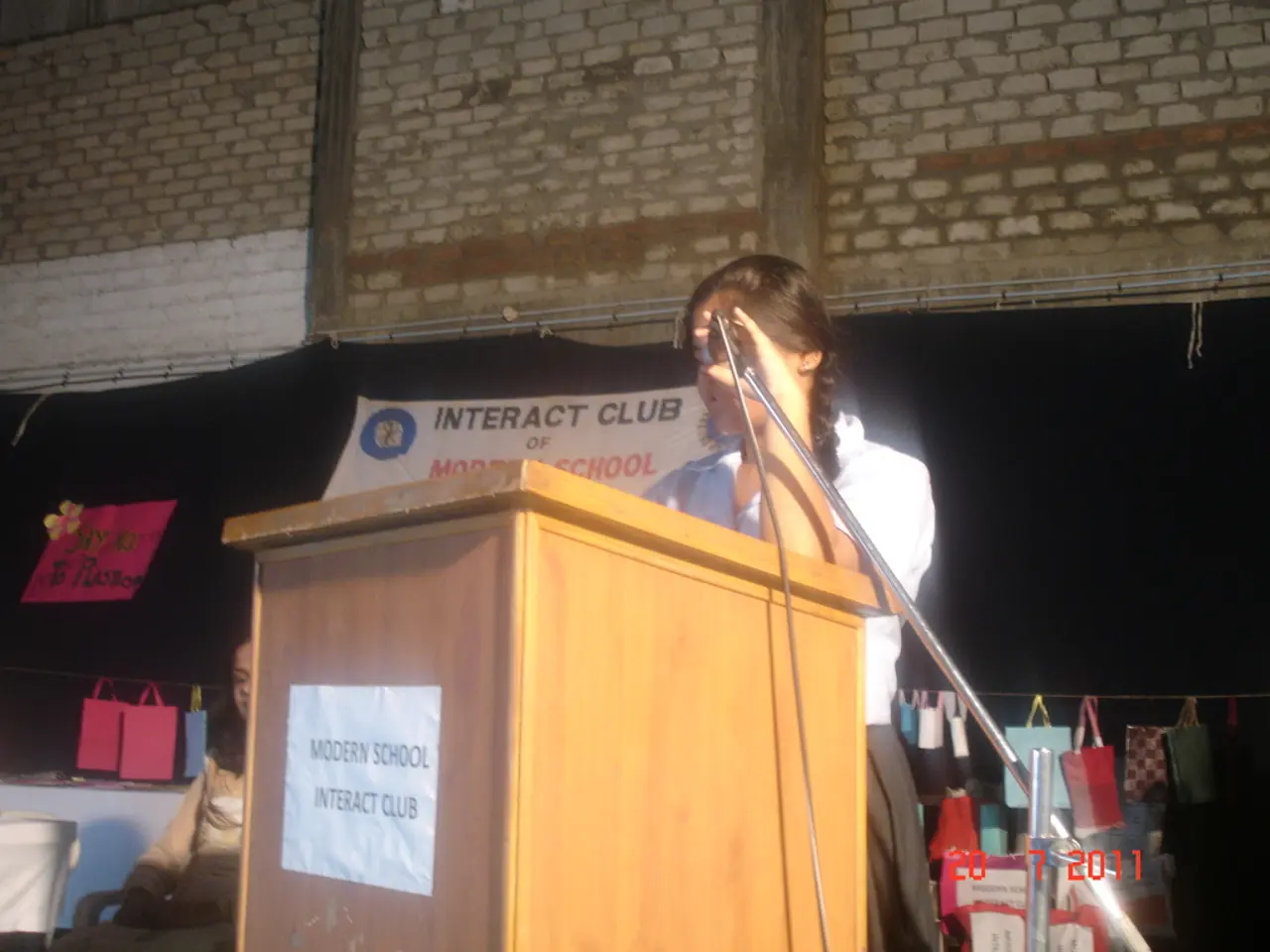Political leaders Weidel and Orbán aim to strengthen their ties in Brussels' political realm.
Alice Weidel, the chairwoman of the Alternative for Germany (AfD) party, met with Hungarian Prime Minister Viktor Orbán in Budapest on Tuesday for the third time. The talks between the two leaders centred on negotiations for the new multi-year EU budget and a "joint alignment and action" in Brussels.
The meeting took place a day after Orbán's meeting with Zhao Leji, the chairman of the Standing Committee of the National People's Congress of China. The discussions between Weidel and Orbán revolved around European political issues and cooperation at the EU level.
Weidel provided information about the meeting to the news magazine Politico, with her spokesperson, Daniel Tapp, also confirming the event. The meeting is not the first between the two politicians, as they have met previously three times.
Their cooperation centres on a shared criticism of the current EU leadership and Brussels bureaucracy. Both Weidel and Orbán advocate for a Europe of sovereign nations with reduced EU centralization. They oppose certain EU policies, such as strict automotive emission regulations and sanctions against Russia, and emphasize national sovereignty and border protection.
Key discussion points between Weidel and Orbán include reforming the EU, economic concerns, foreign policy and security, and opposition to Brussels leadership. They want to reduce the EU's role to core functions, focusing on national sovereignty and citizen-centered policies. Weidel criticizes EU regulations harming industries, particularly the German automotive sector, advocating for free market choices without EU-imposed constraints. Both support Orbán’s stance against EU sanctions on Russia, and Weidel emphasizes a German peace initiative similar to the Russia-US summit addressing the Ukraine conflict, opposing Brussels and Berlin's current approaches.
The implications for the new EU budget and Brussels action are significant. Their cooperation signals increased pressure to curb EU budget policies that fund programs or sanctions they oppose, such as financial aid to Ukraine or projects undermining national sovereignty. Hungary, under Orbán's leadership, has already voted against EU financial aid to Ukraine and criticized budget conditionalities linking funds to political compliance, which aligns with the AfD’s criticism of Brussels policies. They may push for budget priorities focused on national interests rather than EU-wide integration or green policies that affect industries like automotive.
This cooperation could embolden other nationalist or eurosceptic factions in the EU Parliament or member states to demand reforms in Brussels governance, budget allocation, and policy enforcement mechanisms towards greater sovereignty and less central control.
In summary, Weidel and Orbán’s closer political cooperation reflects a common nationalist, sovereignty-centered agenda challenging Brussels’ current direction, with significant implications for EU budget negotiations and policies, including opposition to sanctions on Russia, resistance to centralized economic regulation, and efforts to reshape EU priorities to favor national interests over deeper integration.
The meeting between Alice Weidel and Viktor Orbán discussed policy-and-legislation matters related to the new EU budget and a joint action in Brussels, particularly focusing on reform, economic concerns, foreign policy, and security. Their cooperation is significant as it may lead to pressure on the EU to curb budget policies that fund programs or sanctions they oppose, such as financial aid to Ukraine or projects undermining national sovereignty, and could embolden other nationalist or eurosceptic factions within the EU.







